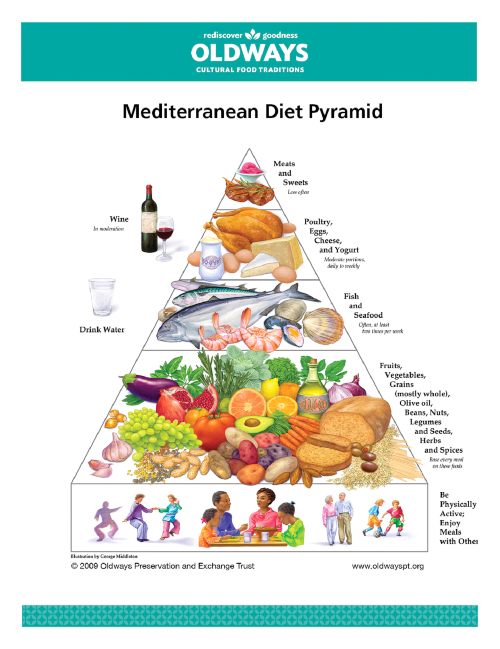As Doctors we write about evidence- based facts and with that in mind select products we believe to be the best for our readers. Thelifestylecure.com is a participant of the amazon associates program and we may earn a very small commission from qualifying purchases at no extra cost to you.
Let’s get right into it. The best diet for insulin resistance is the Mediterranean diet!
According to the U.S. News & World Report the Mediterranean diet has been at the top spot for the last 4 years in a row!
This year it ranks as the #1 best OVERALL diet amongst a total of 39 diets!
Table of Contents
The Connection Between the Mediterranean Diet & Insulin Resistance
Insulin resistance is one of the main causes of prediabetes and type II diabetes. And the Mediterranean Diet is the best eating pattern to adopt in order to prevent and reverse insulin resistance.
In fact, even if you are prediabetic and only now adopt a Mediterranean style eating pattern, you can still reverse your diagnosis!
Meaning NO diabetes.
One of the main driving forces behind the development of insulin resistance is OBESITY. Therefore it’s important to explore the ways you may be able to lose weight in order to reverse your diagnosis.
In order to lose weight and reverse insulin resistance you can do the following:
1. Eat a healthier diet
2. Remain active consistently throughout the day
3. Manage your stress levels
4. Adopt a proper sleep hygiene
5. Avoid risky behaviors and/or habits, i.e. drinking alcohol or smoking
6. Maintain healthy relationships
By making the above 6 lifestyle changes, you will be well on your way to reversing your disease.
So let’s now discover why Mediterranean Diet is the best in the world for insulin resistance!
What Is The Mediterranean Diet (MedDiet)?
Ironically there is no single definition of what the Mediterranean diet is. However we do know is that it’s composed of the following:
1) Vegetables, fruits, healthy fats and whole grains can be consumed on a daily basis
2) Eggs, beans, fish, and poultry can be consumed only on a weekly basis
3) Milk and milk products can be consumed on a moderate basis
4) Red meat can only be consumed in a limited quantity

And that it primarily is a plant-based diet that focuses on whole food.
For simplicity, most food items can be categorized within one of the following groups below:
1) Items you can eat in a limited amount include: meat and meat products (where beef, pork, and lamb are reserved for special occasions).
2) Foods that you should hardly or very rarely consume include: ice cream, butter, processed meats, and whole fat dairy products that aren’t fermented.
3) Things you can consume in abundance are: olive oil, olives, avocados, and other things that are high in mono and polyunsaturated fats.
4) Items that you can enjoy regularly in high amounts: veggies, fruits, whole grains, legumes, and pulses.
These foods are perfect for reversing insulin resistance and explains beautifully why the MedDiet is the best.
When Did The MedDiet Become Popular?
Research into the Mediterranean Diet began in the 50s and 60s of the 20th century.
During that time Scholars noticed that people from the Mediterranean region suffered less death from chronic disease. And that despite inadequate healthcare, people from this region also experienced a longer life expectancy than average! Which was striking at the time.
Since then, different versions of the diet have arised. And as a result in 1993, 3 groups including the Harvard School of Public Health, introduced the Mediterranean Diet Pyramid.
This guide was for those who wanted to familiarize themselves with the eating patterns most common to that region.

https://oldwayspt.org/traditional-diets/mediterranean-diet
The Beauty of the Mediterranean Diet
Did you know that the word diet comes from the Greek word diaita which means “way of living?”
Isn’t it ironic then that this word is now used to symbolize weight loss instead?
It’s evident that somewhere between the origin and the interpretation of the word diet, something definitely changed. And because of this, the word no longer holds true to its Greek origin.
Except it seems when it comes to the Mediterranean diet.
The MedDiet is derived from the daily eating AND living habits of those who live in and around the Mediterranean Sea.
Examples of this would be the Italians and Greeks who eat food high in veggies, fruits, nuts/seeds, olive oil, whole grains, and beans. And stress the importance of being physically active, being able to have a glass of wine, and spending time with friends and family.
Therefore, when used in reference to the Mediterranean diet, the word diet is actually used correctly!
Can You Lose Weight While Eating A Mediterranean Diet?
As mentioned above, weight loss is one of the key ways that can prevent insulin resistance from progressing to prediabetes and diabetes.
However, the MedDiet is not prescribed for weight loss (specifically) by physicians and/or other healthcare related officials.
And the reason it is not prescribed for weight loss per se is that it’s seen as a healthier way of living. As opposed to a traditional weight loss diet. Hence why healthcare professionals are apprehensive to recommend it as a “diet.”
With all of that being said, you can still lose weight while on a MedDiet as a byproduct in a HEALTHY and SUSTAINABLE fashion.
This was demonstrated clearly in 3 different studies in 2004, 2008, and in 2009. The studies conducted showed that people lost MORE weight on the MedDiet than on a low fat diet.
How Can You Switch To Eating A Mediterranean Diet?
I recommend adding healthier foods first before you begin cutting unhealthier ones.
So for example, start adding more veggies and fruits on a daily basis to your diet. Afterwards begin to reduce and/or limit foods like dairy and red meat.
Stick to using healthy fats like OLIVE OIL while cooking (or even water), for dressings, and even as a “spread” on bread.
Other types of healthy fats are found in FISH and other types of SEAFOOD which can be consumed twice/week.
Also remember that eating a palm full of NUTS and/or SEEDS every day is another great healthy fat source. Or having half an avocado/day.
Try switching and/or adding more WHOLE GRAINS to your diet (they come in a variety of different types, textures, and flavors). Examples include: Steel cut oats, brown rice, bulgar, quinoa, millet, buckwheat, whole wheat, rye, barley, whole grain bread and pasta.
Choose to eat white meat instead of red and always pick fermented dairy products or eggs when given the option. These are safe to eat a few times/week or even in small quantities/day.
Another fantastic way to add spice into your life is to add more HERBS and SPICES into the mix. Examples include (but not limited to): basil, mint, garlic, nutmeg, cinnamon, sage, Italian seasoning, oregano, parsley etc.
WATER is the go-to beverage on a daily basis while on a MedDiet.
Also, do not forget about daily physical activity, sharing meals, and spending quality time with loved ones.
What Does The Research Show for the MedDiet and Insulin Resistance?
The research shows that a MedDiet can help you live longer, and can reduce your risk of heart disease, stroke, diabetes, and even premature death.
And because insulin resistance is a risk factor for developing type II diabetes, the MedDiet can reverse it as well.
The results seem to be more statistically significant in males in comparison to females.
Except in one study which was published in Stroke that showed females on a MedDiet could reduce their risk of having a stroke.
And that the MedDiet may be especially protective for women over the age of 40! This also holds true regardless of other factors, such as, being menopausal or having been on hormone replacement therapy.
What Are The Pitfalls Of The MedDiet?
The main pitfall is that the EXACT amount of food you can eat is never really stated. It is basically up to you then to decide how much you should be consuming on a daily basis.
And this can be very tricky in both the short and long term.
Because that’s exactly when the trouble begins. You end up going down a slippery slope. For example, you think that you’re feeding your body the right stuff but may actually feel more bloated or sluggish.
It is also not inherently clear on whether or not potatoes and eggs can be consumed on a regular basis. Some say that you can eat them and others state that they should be limited. Which is a problem because potatoes are high in carbohydrates and should be consumedly limitedly in any diabetic.
Another pitfall is that they recommend having one glass of wine per day. This, however, does not sit right with a lot of researchers and/or healthcare professionals.
Mainly because alcohol itself can lead to a whole host of diseases.
Conclusion: The Mediterranean Diet is the Best Diet for Insulin Resistance
The MedDiet is overall the healthiest diet that anyone can adopt. But it is especially great for those diagnosed with insulin resistance, prediabetes or type II diabetes.
It was ranked in first place by experts in the following fields: Diet, nutrition, obesity, food psychology, diabetes, and heart disease.
The MedDiet also ranked 1st in the following categories:
- Healthiest diet
- Easiest diet to follow
- Best diet for diabetes
- And the best plant based diet
And ranked number 2 for best heart healthy diet, followed only by the Ornish diet.
The bottom line is that the MedDiet is a healthier way of living vs any other standard diet. Which is why it can be sustained in the long run and prevent you from becoming a prediabetic or a type II diabetic.
This is why it is regularly prescribed for those who have risk factors for heart disease, premature death, and/or diabetes.
Please do keep in mind that it is always imperative to consult with your healthcare provider before beginning anything new.
Stay happy, stay healthy.
For more ways to lose weight please be sure to check out:
Top 17 Deliciously Weight Loss Smoothie Recipes
11 Genius Fat Loss Tips To Do At Home Now!
Why You Are Not Losing Weight Despite Doing Everything Right!


